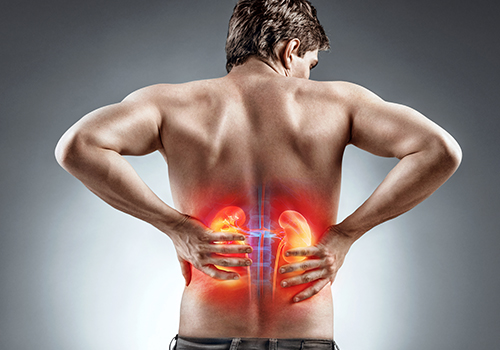Kidney stones are one of the most painful and common medical conditions. They can cause significant discomfort and, in some cases, lead to more serious complications if left untreated. Seeking the expertise of a kidney stone specialist is essential for effectively managing and preventing kidney stones. This detailed guide will help you navigate your options and understand why choosing the right specialist is so important.

Why You Need a Urologist
Not all kidney stones are the same. The treatment approach varies based on the type, size, and location of the stones. While some smaller stones may pass naturally, larger stones or those that are stuck in the urinary tract require medical intervention. By consulting a kidney stone specialist, you can receive personalized care designed to not only treat the current issue but also help prevent future stones from forming.
Signs You Should Visit a Urologist
If you are experiencing any of the following symptoms, it’s crucial to seek the care of a Urologist:
- Severe pain: This may be felt in the back, side, or lower abdomen and is often sharp or cramping.
- Blood in urine: This is a common symptom of kidney stones and should never be ignored.
- Painful urination: A burning or painful sensation during urination can indicate a urinary obstruction caused by a stone.
- Frequent urination: Needing to urinate frequently, particularly in small amounts, can be a sign of kidney stones.
- Inability to pass urine: Complete blockage due to a large stone may prevent you from urinating.
If these symptoms occur, it’s important to get a professional evaluation as soon as possible.
How to Choose the Right Urologist
Finding the right Urologist can feel overwhelming, but it’s an essential step in getting the best treatment possible. Here are some key considerations to help guide your decision-making:
1. Expertise and Specialization
Ensure that the specialist is a qualified urologist with specific experience in kidney stones. Some urologists focus on general urology, while others specialize in treating stones. Make sure your doctor has extensive experience with various types of kidney stones, as well as the most advanced treatment techniques.
2. Use of Advanced Technology
A great Urologist uses the latest technology for accurate diagnosis and effective treatment. Look for specialists who have access to tools like:
- CT scans and ultrasound for detailed imaging of kidney stones
- Laser lithotripsy and shockwave therapy for non-invasive stone removal
- Endoscopic procedures for removing stones from the urinary tract
Using advanced equipment can improve the precision of diagnosis and the outcomes of treatment.
3. Personalized Care Approach
A good Urologist will take the time to understand your unique needs. They should listen to your concerns, explain the available treatment options, and tailor the treatment plan to your specific case. Choose a specialist who makes you feel comfortable and confident in their care.
4. Accessibility and Communication
The best specialists ensure that they are accessible when you need them and communicate clearly throughout the treatment process. They should be responsive to your questions and help you understand the next steps in your treatment and recovery.

Treatment Options Provided by Kidney Stone Specialists
There are several treatment options available for kidney stones, depending on their size, location, and type. A Urologist will recommend the most suitable treatment based on your specific condition.
1. Conservative Treatment
For smaller kidney stones, conservative treatment is often the first line of action. This involves:
- Increased fluid intake: Drinking more water helps flush the stones out naturally.
- Pain management: Over-the-counter pain relievers like ibuprofen or prescription painkillers may be used to manage pain during stone passage.
- Medications to relax the urinary tract: Alpha-blockers may be prescribed to relax the muscles in the ureter, making it easier for stones to pass.
2. Lithotripsy (Shock Wave Treatment)
Lithotripsy is a non-invasive procedure that uses high-energy shock waves to break large kidney stones into smaller fragments. These fragments are then passed through the urinary tract. This method is most effective for stones that are too large to pass on their own.
3. Ureteroscopy
If the stones are lodged in the ureter (the tube that connects the kidneys to the bladder), ureteroscopy may be recommended. This minimally invasive procedure involves inserting a small camera through the urethra and bladder to remove the stone or break it into smaller pieces.
4. Percutaneous Nephrolithotomy (PCNL)
For very large kidney stones, percutaneous nephrolithotomy (PCNL) may be necessary. This is a more invasive procedure that requires making a small incision in the back to directly access and remove the stone. It is typically reserved for stones that cannot be treated with less invasive methods.
5. Open Surgery
In rare cases, open surgery may be required for stones that are too large, too complex, or have caused significant damage to the kidneys or urinary tract. This surgery involves a larger incision and longer recovery time but may be necessary in extreme cases.
Prevention of Kidney Stones
Preventing kidney stones is just as important as treating them. After treatment, a kidney stone specialist will often advise lifestyle and dietary changes to reduce the risk of future stones. Some effective prevention tips include:
- Stay hydrated: Drink enough water throughout the day to produce clear, light-colored urine.
- Reduce salt and animal protein: Excessive salt and animal protein can increase the risk of kidney stone formation.
- Monitor calcium intake: Calcium is essential for bone health, but too much can increase the risk of stones. A specialist will help you find the right balance.
- Limit oxalate-rich foods: Foods like spinach, beets, and chocolate contain oxalates, which can contribute to stone formation.
A kidney stone specialist will also guide you on the appropriate medications to prevent future stones based on your medical history and type of stone.
When to Seek Emergency Help
In certain situations, kidney stones can lead to more severe problems that require urgent medical attention. You should immediately consult your Urologist or visit the emergency room if you experience:
- Severe, sharp pain that is not relieved by pain medication
- Fever and chills, which could indicate an infection
- Nausea and vomiting that won’t stop
- Inability to urinate or significant difficulty passing urine
Living with Kidney Stones
While kidney stones are painful, many people go on to live healthy, active lives after treatment. Following a personalized treatment and prevention plan designed by your kidney stone specialist can help you minimize the risk of recurrence and maintain your kidney health. Regular follow-up appointments will ensure that your kidney function is monitored and any new stones are detected early.
Conclusion
Dealing with kidney stones can be an overwhelming experience, but with the right care from a skilled kidney stone specialist, you can manage and prevent these painful stones. Take the time to choose the right specialist based on their experience, communication skills, and approach to treatment. With their help, you can find relief and improve your quality of life.
Frequently Asked Questions
- How long does it take to recover from kidney stone treatment?
Recovery time varies. Non-invasive treatments like lithotripsy may only take a few days, while surgical treatments may require weeks for full recovery. - Can diet affect kidney stones?
Yes. A proper diet can help prevent kidney stones. Your specialist will guide you on reducing foods that increase your risk, like salt, oxalate-rich foods, and excessive protein. - Are kidney stones always visible on an X-ray?
Not all kidney stones show up clearly on X-rays. Some types of stones, like uric acid stones, may require additional imaging like CT scans or ultrasounds. - Can kidney stones come back after treatment?
Yes, kidney stones can recur. However, with the right treatment and prevention strategies, the risk can be significantly reduced.
